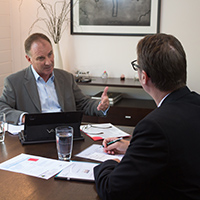Business Tips
Resilience is a technique that can be learnt
- Details
- Parent Category: Business Tips
- Category: Self-Motivation & Awareness
With the Sochi Winter Paralympics upon us, perhaps paralympians can teach more able-bodied athletes a thing or two about resilience.
Stacey Copas is the author of e-book ‘How to be Resilient: the blueprint for getting results when things don't go to plan’, and is training for discus and the 100m wheelchair sprint for the 2016 Rio Paralympics.
Many people think it is a personality trait; Stacey believes it is a technique that can be learnt to cope with life's problems.
“I have been a quadriplegic since a devastating accident left me in a wheelchair at the age of 12. While some people have a natural aptitude for resilience, I have had to build and nurture it to help me overcome the stresses and pressures of everyday life.”
No one is immune to tragedy. What sets people apart is how they cope. Yes, some of it is about how you were brought up, but there are some techniques that many successful, resilient people use to help them through tougher times.
Below, Stacey outlines some of her ideas on how to build resilience for the life we want.
First, you need to be responsible for your actions and take control of your life. Self-blame can get to the best of us, but by pinning the blame on others you relinquish your control of the situation.
Second, making excuses for your behaviour can actually mean you do not want to succeed in life. Often I was not the most punctual person and made excuses to myself and others for this. I realised this was just a way of saying to myself: ''I don't matter; no one cares if I'm late.'' A confident and resilient person knows the importance of their presence, their punctuality and makes sure when they commit to something that they follow through.
When you are not feeling confident you can often attract negativism, whether it is through your own thoughts or by letting negative people, or those close to you, say undermining things.
Try to surround yourself with those who care about you, are positive and can buoy you for success. Remember, you are an average of the five people around you. Take a look and see who you might end up becoming in five years' time. If it is a scary thought, perhaps do some repositioning.
Resilience is rolling with the punches a lot of the time. My husband and I once drove for two hours to spend a day with friends. On our arrival, my ashen-faced partner confessed he had forgotten to put my wheelchair in the car. I could have shouted, blamed him or given up and gone home. Instead I saw it as a bit of a challenge, an adventure. It was not easy but I refused to let it spoil the day.
I should add that I have not always been like this. In my teenage years, as I came to terms with my quadriplegia, I was very angry and I would not have been able to handle such a situation. Resilience is a learning journey, and constant monitoring of one's state of mind and behaviour is often required.
Being dramatic or making a bad situation worse is definitely not what a resilient personality will condone. Framing a situation in a positive light, rather than a negative one, will stop the ''I'm not coping'' thoughts in their tracks.
Finally, do not underestimate the importance of written-down and revisited goals.
Be goal oriented.
Lead an inspired life and ensure you have a strong emotional connection to your vision and purpose, because it is essential to keep you on track when things are not going as well as you had hoped.
With thanks, www.smh.com.au



























